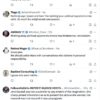🔴 Website 👉 https://u-s-news.com/
Telegram 👉 https://t.me/usnewscom_channel
A pharmaceutical executive’s reckless negligence has claimed at least 21 innocent children’s lives, exposing catastrophic regulatory failures that allowed toxic contamination levels 460 times higher than safety limits to reach vulnerable families.
Story Highlights
- Indian police arrested 75-year-old Ranganathan Govindan on culpable homicide charges after his company’s cough syrup killed 21 children under age 5
- Coldrif cough syrup contained deadly diethylene glycol at 46-48% concentration versus the 0.1% safety limit
- Govindan fled authorities before being captured in Chennai with unregistered toxic chemical containers found at his factory
- WHO investigating potential international exports following similar Indian pharmaceutical disasters in Gambia and Uzbekistan
Executive Arrested After Fleeing Child Death Scene
Ranganathan Govindan, 75-year-old owner of Thresan Pharma, faces culpable homicide and drug adulteration charges after authorities tracked him to Chennai, Tamil Nadu. Police offered a 20,000 rupee reward during the manhunt that followed his flight after children began dying from his contaminated Coldrif cough syrup. The arrest came after investigators seized production documents and unregistered diethylene glycol containers from his manufacturing facility, revealing systematic safety violations.
All 21 victims were children under five years old in Madhya Pradesh who consumed the toxic medication over the past month. Each child developed acute kidney injury symptoms before death, consistent with diethylene glycol poisoning. The antifreeze chemical, commonly used in industrial applications, proved lethal even in small doses given to these vulnerable young patients seeking relief from common cold symptoms.
Contamination Levels Expose Catastrophic Safety Failures
Laboratory analysis revealed Coldrif syrup contained 46-48% diethylene glycol contamination, approximately 460-480 times the 0.1% permissible safety limit. This extreme contamination level indicates either gross negligence or deliberate cost-cutting measures that substituted toxic industrial chemicals for safe pharmaceutical ingredients. The contamination represents a complete breakdown of basic manufacturing protocols that should protect consumers from harmful substances.
India’s Health Ministry responded by banning Coldrif syrup across multiple states and ordering comprehensive testing of all children’s medicines nationwide. This emergency response reveals the extent of potential contamination risks throughout India’s pharmaceutical manufacturing sector. The ministry’s actions demonstrate the urgent need for enhanced quality control oversight to prevent similar tragedies.
Pattern of International Pharmaceutical Negligence Emerges
The World Health Organization launched investigations into whether contaminated batches reached international markets, given India’s role as a major global generic drug supplier. Previous incidents involving Indian-made cough syrups caused child deaths in Gambia and Uzbekistan, establishing a disturbing pattern of quality control failures. These repeated international incidents damage trust in Indian pharmaceutical exports and raise serious questions about regulatory enforcement capabilities.
The culpable homicide charges against Govindan represent significant escalation in holding pharmaceutical executives criminally accountable for manufacturing violations. This legal precedent could strengthen corporate responsibility standards and deter future safety violations through meaningful consequences. However, enforcement challenges in India’s vast pharmaceutical sector require comprehensive reforms to prevent similar tragedies from recurring.
Sources:
Indian Police Arrest Owner of Cough Syrup Company Linked to Deaths of Children
Indian pharmaceutical contamination incident report

